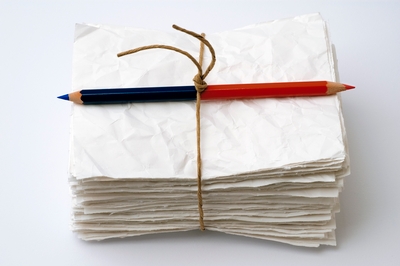How often have I heard the comment that editors are failed writers — or, in the scholarly environment in which I work, failed academics. Even when said in jest, the underlying suggestion is that one way of interacting with words and ideas — the editor’s — is somehow inferior. Such statements also hint at a sense of exclusivity: If you are one, you cannot possibly be the other. This idea troubles me, for there are many good writers who are also excellent editors. Ezra Pound is one of these: he who scythed sheafs off Eliot’s The Waste Land could be as brutal with his own work — to wit, “In a Station of the Metro,” which famously went from 32 lines to the two we know. Eliot, too, was as astounding an editor as he was a writer. His editorial input graces the works of Ted Hughes and Amos Tutuola, whose “creepy crawly imagination” mesmerized him.
 Not all of us can be both, but we should learn from each other’s trades. Writers are told to practise daily to hone their skills; editors seldom receive the same advice. Editors are chameleons who are required to change colours and emulate different voices and styles with every new piece of work they tackle. Just like writers. Spending some time rewriting a piece in different voices and styles is good practice for editing. Take a passage from a classic — let’s say the passage where the pirates sleep on the island in The Adventures of Tom Sawyer. Rewrite it in the voice of Stephen King. Do it in the voice of Faye Kellerman or Arthur Koestler. You may never get your masterpiece published, but it is a writing exercise that will make you a better editor.
Not all of us can be both, but we should learn from each other’s trades. Writers are told to practise daily to hone their skills; editors seldom receive the same advice. Editors are chameleons who are required to change colours and emulate different voices and styles with every new piece of work they tackle. Just like writers. Spending some time rewriting a piece in different voices and styles is good practice for editing. Take a passage from a classic — let’s say the passage where the pirates sleep on the island in The Adventures of Tom Sawyer. Rewrite it in the voice of Stephen King. Do it in the voice of Faye Kellerman or Arthur Koestler. You may never get your masterpiece published, but it is a writing exercise that will make you a better editor.
Just as editors need to understand how narrative works, writers need to understand how editing works so that they can return to their own work and remove the flotsam from their drafts. The stock advice to writers holds true for editors as well: Is everything that is there necessary, and is everything that is necessary there? In the end, writing and editing are not that different. Both writers and editors gain from reading widely and from honing the same skills; they simply put them to different purposes in service of the same goal: more good books. Some editors may not be able to create an original scene, but their strength lies in recognizing the excesses.
Those who, like Pound, can both write and edit, are the lucky ones.
Peter Midgley recently won the Tom Fairley Award for Editorial Excellence. Read his interview with author Kimmy Beach here.
The Editors’ Weekly is the official blog of Editors Canada. Contact us.
Discover more from The Editors' Weekly
Subscribe to get the latest posts sent to your email.
